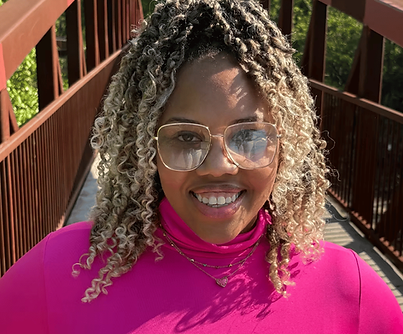WHO WE ARE

4 Highly Recommended Atlanta EMDR Therapists
Have you found yourself reliving a past experience through memories and nightmares or within your body? Do you catch yourself overthinking or fixating on this experience in your daily life?
If so, EMDR therapy can help.
At Steady Hope Counseling, our EMDR-trained therapists can help you change how your brain responds to these distressing memories. Here, we’ll share more about our approach and introduce you to our team so you can find the right fit for your journey.
None of us are immune to being impacted by life.
Jump to a therapist
-
Best for teens and young adults: Phylicia Clemons & Fern Lima
-
Best for helping professionals and high achievers: Kim DeRamus Lareau & Phylicia Clemons
-
Best for grief, loss, and stage-of-life changes: Fern Lima & Sam Merrill
-
Best for new moms and perinatal mental health: Sam Merrill & Kim DeRamus Lareau
Meet our Atlanta EMDR therapists
What sets our practice apart from other Atlanta EMDR treatment providers
At Steady Hope, EMDR is more than just a therapy technique—it's part of a holistic, trauma-informed approach that considers your mental, physical, spiritual, and emotional well-being. Here's what makes us different:
-
Diverse, highly trained team with specializations in life transitions, trauma recovery, and other trauma-informed techniques like IFS
-
Perinatal Mental Health Certified therapists who understand the unique challenges of pregnancy, postpartum, and motherhood
-
Flexible scheduling with evening and weekend availability
-
Hybrid options for in-person or virtual sessions across GA, FL, and SC
-
Collaborative care where our team consults with each other to give you the best support possible
Our approach to EMDR therapy goes beyond treating symptoms. We’re here to help you rediscover wholeness and build a life that feels like home.
Common reasons people start EMDR therapy
-
Struggling with anxiety or panic attacks that seem to come out of nowhere
-
Feeling stuck in patterns that repeat in relationships, even when you know better
-
Experiencing birth trauma or a difficult pregnancy/postpartum period
-
Carrying the weight of childhood experiences that still show up today
-
Dealing with grief or loss that feels too heavy to process alone
-
Noticing that your body holds tension or fear even when your mind says you're safe
-
Wanting to heal from past trauma without having to talk about every detail over and over
What to expect from the therapy process
Step 1. Building safety and trust first
Before diving into trauma processing, your therapist will take time to get to know you, understand your history, and help you build coping skills. This foundation makes the deeper work feel manageable and safe.
Step 2. Identifying what needs healing
Together, you'll pinpoint the memories, beliefs, or experiences that are keeping you stuck. EMDR works by helping your brain reprocess these moments so they no longer carry the same emotional charge.
Step 3. Reprocessing with guided support
During EMDR sessions, your therapist will guide you through bilateral stimulation (like eye movements or tapping) while you focus on the targeted memory. This helps your brain process the experience in a way that brings resolution and relief.
Step 4. Integrating and moving forward
As you work through EMDR, you'll notice shifts—less anxiety, more clarity, healthier relationships. Your therapist will help you integrate these changes and build on the progress you've made.
FAQs about EMDR therapy

Start working with an Atlanta EMDR therapist today
Our team of trained therapists at Steady Hope Counseling will find the ideal approach to help you move forward. If you want to learn more about EMDR or connect with a therapist, schedule your free, 15-minute consultation today.
.png)
.png)
.png)
.png)